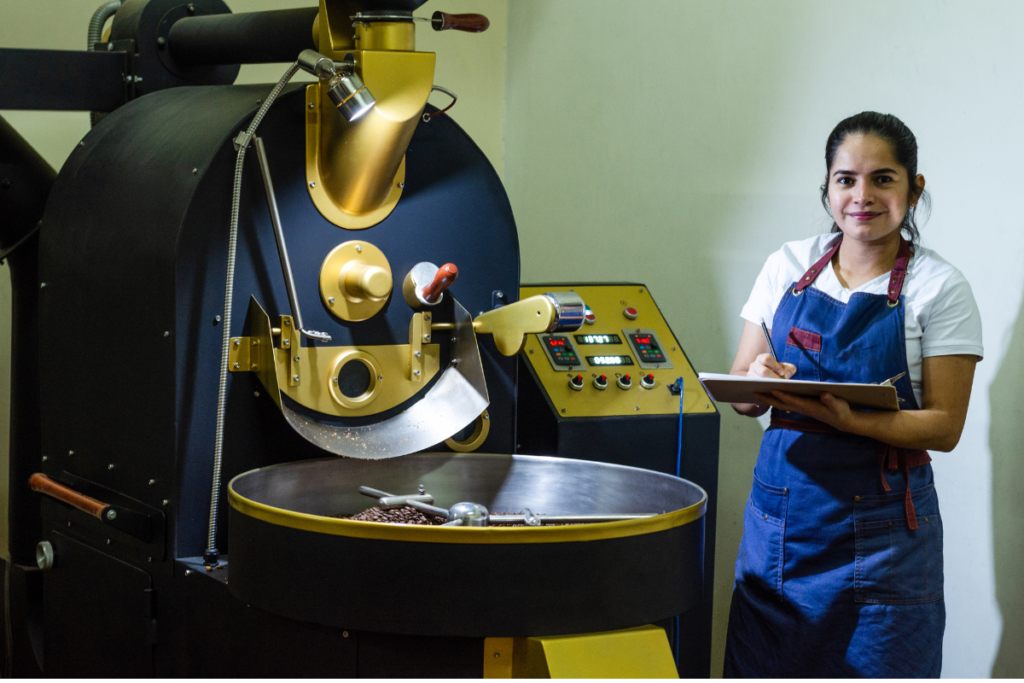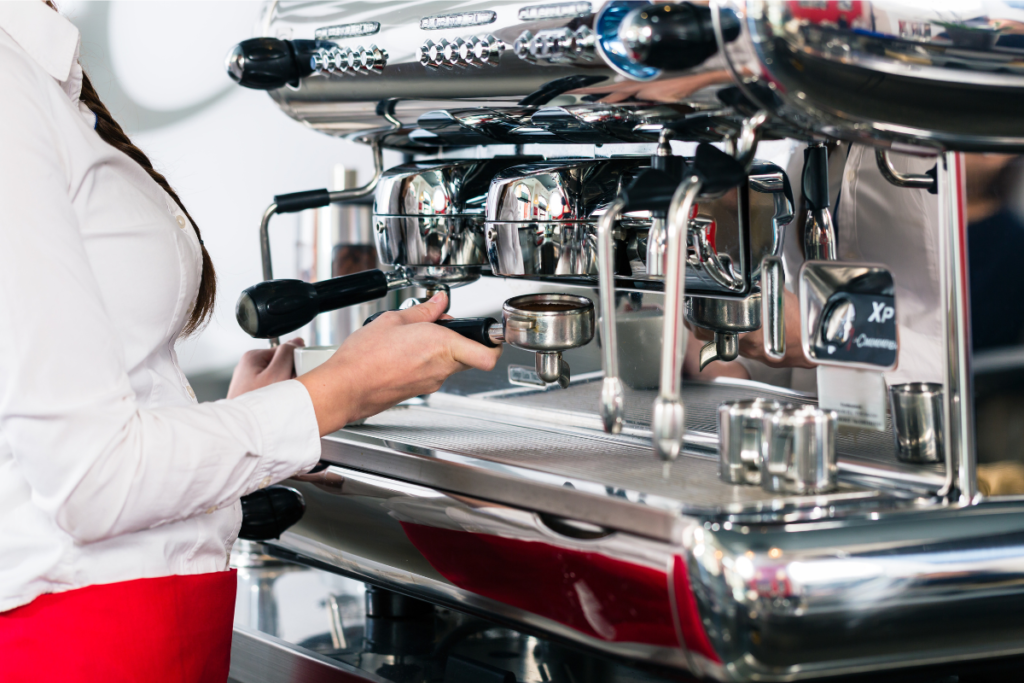
In the highly competitive world of specialty coffee roasting and coffee shops alike, delivering exceptional customer service and engagement is crucial for building a loyal customer base and differentiating oneself from competitors. By prioritizing customer service, specialty coffee businesses can create a memorable experience for their customers, fostering strong relationships and establishing a robust brand identity. This involves understanding customers’ needs and preferences, offering personalized recommendations, and responding to feedback and complaints. By doing so, coffee professionals can differentiate themselves in a crowded market and build lasting relationships with their customers. This blog post delves into the significance of customer service and engagement for specialty coffee roasters and cafés, providing valuable tips and strategies for cultivating enduring connections with customers.
6 Strategies for Building Lasting Relationships with Your Customers
1) Understand Your Customers
Understanding your customers is a vital component of delivering exceptional customer service and engagement as a specialty coffee roaster. To achieve this, it is essential to comprehend their needs, preferences, and behaviors. By doing so, you can tailor your services to better meet their needs and provide a more personalized experience.
1.1. Collecting and Analyzing Data
One effective method of understanding your customers is by collecting and analyzing data. This includes:
- Analyzing Customer Feedback and Reviews: Reviewing customer feedback and reviews helps you identify areas of improvement and understand what your customers like and dislike about your products and services.
- Tracking Sales Data: Analyzing sales data helps you understand which products are most popular, allowing you to optimize your offerings and inventory.
- Collecting Demographic Information: Gathering demographic data about your customer base helps you understand their characteristics, preferences, and behaviors, enabling you to tailor your services and marketing strategies accordingly.
By analyzing this data, you can identify patterns and trends in customer behavior, which can inform your business decisions and help you better cater to your customers’ needs.
1.2. Building Relationships
Another crucial aspect of understanding your customers is building relationships with them. This involves:
- Providing Excellent Customer Service: Delivering exceptional customer service is critical in building trust and loyalty with your customers.
- Engaging on a Personal Level: Engaging with your customers on a personal level helps you understand their preferences and tastes. This can include learning their names, asking about their preferences, and making recommendations based on their tastes.
- Personalized Recommendations: By building these relationships, you can create a loyal customer base that will continue to support your business and spread the word about your brand.
By combining data analysis and personal engagement, you can develop a deep understanding of your customers, enabling you to provide a more personalized and memorable experience that fosters loyalty and drives business growth.
2) Offer Personalized Recommendations
Offering personalized recommendations is a crucial aspect of customer service for specialty coffee roasters. By tailoring suggestions to individual preferences, roasters can foster a deeper connection with customers, increase loyalty, and boost sales. Here are key points to consider when offering personalized recommendations:
2.1. Understanding Customer Preferences
To provide effective personalized recommendations, coffee roasters must first understand their customers’ preferences. This can be achieved through various methods, including:
- Surveys and Feedback: Collecting customer feedback and surveys helps roasters understand what customers like and dislike about their products.
- Data Analysis: Analyzing customer data, such as purchase history and browsing patterns, provides valuable insights into customer preferences.
2.2. Recommending Based on Preferences
Once roasters understand customer preferences, they can offer tailored recommendations that cater to each customer’s tastes. This includes:
- Roast Level and Flavor Profile: Suggesting different roast levels and flavor profiles based on customer preferences.
- Brewing Methods: Recommending brewing methods that align with customer preferences.
2.3. Upselling Opportunities
Personalized recommendations can also create opportunities for upselling. For example:
- Similar Products: Suggesting similar products with slightly different flavor profiles or higher-priced options.
- Tailored Upselling: Upselling in a personalized way, taking into account each customer’s preferences and purchase history.
2.4. Technology Solutions
Technology can significantly enhance personalized recommendation capabilities. For instance:
- Customer Relationship Management (CRM) Software: Tracking customer preferences and purchase history allows roasters to provide tailored recommendations.
- Online Recommendation Engines: Suggesting products based on a customer’s previous purchases and browsing history.
By incorporating these strategies, coffee roasters can deliver personalized recommendations that resonate with customers, fostering loyalty and driving sales.
3) Respond to Feedback and Complaints
Responding to customer feedback and complaints is crucial for specialty coffee roasters to improve their products, services, and overall customer experience. Here are key points to consider when responding to feedback and complaints:
3.1. Listening to Customer Feedback
Coffee roasters should actively listen to customer feedback, whether it’s positive or negative. This can be achieved through various channels such as social media, surveys, reviews, and customer service interactions. By listening to customer feedback, roasters can identify areas for improvement and address any issues that customers may have.
3.2. Timely and Professional Response
When responding to customer feedback or complaints, coffee roasters should do so in a timely and professional manner. This involves:
- Acknowledging Concerns: Recognizing the customer’s concerns and showing empathy.
- Apologizing: If necessary, apologizing for any inconvenience or issue.
- Providing Solutions: Offering a solution or next steps to resolve the issue.
By responding in a timely and professional manner, coffee roasters can demonstrate that they value customer feedback and are committed to providing excellent customer service.
3.3. Addressing the Root Cause
When a customer complains, it’s essential to address the root cause of the issue rather than just addressing the symptom. For example, if a customer complains about a coffee being too bitter, the coffee roaster should investigate the reason for the bitterness and take steps to improve the roasting process. By addressing the root cause of complaints, coffee roasters can prevent similar issues from happening in the future.
3.4. Making Improvements
Customer feedback can be a valuable source of information for coffee roasters to make improvements to their products and services. By analyzing feedback trends, roasters can identify areas for improvement and take steps to make changes. This can lead to a better overall customer experience and increased customer loyalty.By following these steps, coffee roasters can effectively respond to customer feedback and complaints, leading to improved products, services, and customer satisfaction.
4) Provide Educational Resources
By offering educational resources such as articles, videos, and classes, specialty coffee roasters can empower their customers with knowledge about the world of coffee, provide insights into their roasting process, and cultivate a deeper appreciation for their products. Here are key points to consider when providing educational resources:
4.1. Sharing Coffee Knowledge
Providing educational resources presents an opportunity for coffee roasters to share information about coffee with their customers. This can include:
- Coffee History: Sharing the rich history of coffee, from its origins to its global spread.
- Coffee Types: Educating customers about different types of coffee beans, such as Arabica and Robusta, and their distinct flavor profiles.
- Roasting Process: Offering insights into the roasting process, including the physical changes that occur during roasting and how to control them.
By educating customers about coffee, coffee roasters can foster a deeper appreciation for their products and differentiate themselves from competitors.
4.2. Classes and Workshops
Coffee roasters can offer classes and workshops to educate customers about different brewing methods and techniques. This can include:
- Brewing Methods: Classes on how to use a French press, pour-over, or espresso machine.
- Coffee and Food Pairings: Workshops on pairing coffee with food to enhance the overall coffee experience.
By offering classes and workshops, coffee roasters can provide a unique and engaging experience for their customers.
4.3. Recipes and Tips
Coffee roasters can also provide recipes and tips for making coffee drinks and food pairings. This can include:
- Coffee Recipes: Recipes for lattes, cappuccinos, and other coffee-based drinks.
- Food Pairing Suggestions: Suggestions for food pairings that complement different coffee flavors.
By providing recipes and tips, coffee roasters can enhance their customers’ overall coffee experience.
4.4. Utilizing Social Media and Email Newsletters
Coffee roasters can utilize social media and email newsletters to provide educational resources to their customers. This can include:
- Sharing Blog Posts and Videos: Sharing educational content on social media and email newsletters.
- Announcing Classes and Events: Announcing upcoming classes and events to engage with customers and build a community around their brand.
By using social media and email newsletters to provide educational resources, coffee roasters can engage with their customers and build a community around their brand.
5) Offer Promotions and Discounts
Offering promotions and discounts is a crucial strategy for specialty coffee roasters to attract new customers, retain existing ones, and increase sales. These incentives can take various forms, such as limited-time sales, buy-one-get-one-free offers, and loyalty programs. Here are key points to consider when offering promotions and discounts:
5.1. Attracting New Customers
Promotions and discounts can be a powerful way to attract new customers who might not have tried the coffee roaster’s products before. For example, a limited-time promotion that offers a discount on the first order can encourage new customers to give the coffee a try. This can help expand the customer base and increase brand visibility.
5.2. Retaining Existing Customers
Promotions and discounts can also be used to reward and retain existing customers. For example, a loyalty program that offers discounts or free items after a certain number of purchases can encourage customers to return and continue to support the brand. This helps build customer loyalty and fosters long-term relationships.
5.3. Boosting Sales
Promotions and discounts can also be used strategically to boost sales during slow periods or to move excess inventory. For example, a promotion that offers a discount on a specific product that isn’t selling well can help clear out inventory and boost sales. This can help optimize inventory management and improve overall sales performance.
5.4. Clear Terms and Conditions
It’s essential for coffee roasters to set clear terms and conditions for their promotions and discounts, including the duration of the promotion, any restrictions or limitations, and any expiration dates. This helps avoid confusion or disappointment among customers and ensures a smooth experience.
5.5. Promoting the Promotion
Finally, it’s crucial for coffee roasters to promote their promotions and discounts effectively, both to existing customers and to potential new customers. This can include sharing the promotion on social media, sending out email newsletters, and placing ads or banners on their website. Effective promotion helps ensure that the incentives reach the target audience and maximize their impact.By considering these points, coffee roasters can create effective promotions and discounts that attract new customers, retain existing ones, and boost sales.
Conclusion
In conclusion, customer service and engagement are vital components for specialty coffee roasters to thrive in today’s competitive market. By understanding their customers’ preferences, building a strong brand, offering personalized recommendations, responding to feedback and complaints, providing educational resources, engaging with customers on social media, and offering promotions and discounts, coffee roasters can cultivate a loyal customer base and drive business growth.
By focusing on these key areas, specialty coffee roasters can differentiate themselves from their competitors and create a positive and memorable experience for their customers. It is essential for coffee roasters to listen to their customers, address their concerns, and provide excellent service, whether it’s through personalized recommendations or responsive customer service.
Ultimately, building a successful coffee roasting business is about more than just selling a great product – it’s about creating a connection with customers and fostering a sense of community around the brand. By prioritizing customer service and engagement, coffee roasters can establish a strong foundation for long-term success and growth.


